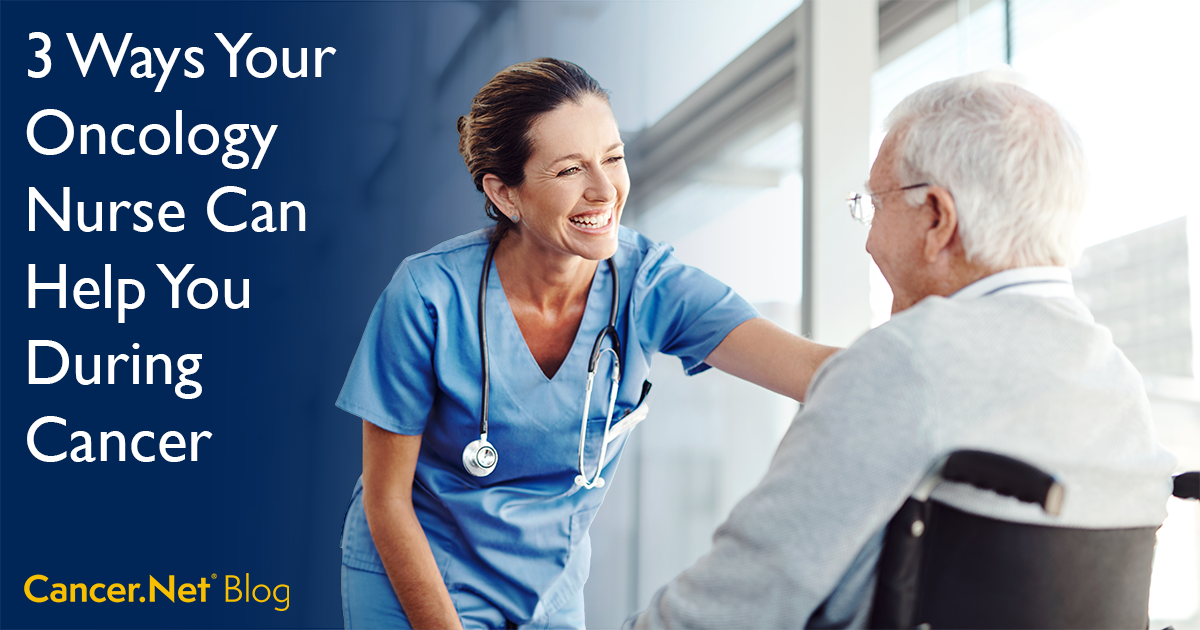
Teresa Knoop, MSN, RN, AOCN®, is an advanced oncology certified nurse through the Oncology Nursing Certification Corporation and is secretary on the Oncology Nursing Society Board of Directors, elected in 2020. She has published numerous articles in nursing journals and speaks frequently on the topics of new cancer drug treatments and cancer clinical trials. Teresa retired in 2021 after 24 years with the Vanderbilt-Ingram Cancer Center Clinical Trials Office in Nashville, Tennessee, and after 43 years of nursing. She is currently self-employed as a nurse consultant.
Oncology nurses are nurses who care for people diagnosed with cancer and those at risk for developing cancer. In 1978, I became a nurse, and 6 years later, I discovered my passion for oncology nursing. Little did I know that I would be honored to work alongside people with cancer for the rest of my nursing career.
In my early oncology career, I worked with a social worker who described receiving a cancer diagnosis as throwing one’s life in the air and having it come down in a thousand pieces. Many of the patients I have encountered through the years have found that description to be relatable. It is my thought that one of the most important contributions of the oncology nurse is to assist the patient and their caregivers in putting those pieces of their lives back together again.
The role of the oncology nurse within the cancer care team
You may meet oncology nurses during each part of your cancer journey. You may meet them during cancer screening, during the diagnosis process, or after receiving a diagnosis. Oncology nurses can be found in any type of cancer care setting. They work in rural, suburban, and urban areas, and they serve in a variety of nursing roles in outpatient clinics, inpatient hospitals, surgical centers, radiation centers, and infusion centers. Additionally, you may meet an oncology nurse as a navigator, a clinical trials nurse, in a cancer survivorship clinic, or at the end of life in hospice care.
Oncology nurses can be educated at a variety of levels and are expected to maintain competence in their own area of care. For example, nurses who give chemotherapy receive additional training to make sure they give your treatments in a safe manner, and many nurses obtain certification to validate their specialty oncology knowledge. Some oncology nurses obtain higher levels of education to function as advanced practice nurses or nurse scientists. No matter the setting in which you meet an oncology nurse, they are an important member of your cancer care team and work with the rest of your team to give you the best care.
How your oncology nurse can help you
Cancer is a complex and complicated disease, which can be overwhelming. People diagnosed with cancer are often at their most vulnerable and look to their care team for the support and education they need. Oncology nurses serve as a vital source of education, advocacy, support, and reassurance. Below, learn more about how your oncology nurse can help after a cancer diagnosis.
1: Education
Education is at the root of what an oncology nurse can provide. This education will be based on where you are in your cancer journey. You may need education around the steps of a cancer diagnosis or require vital information about your treatment. Your oncology nurse will help you learn about your cancer, your cancer treatment, and how to control the symptoms you experience. This education is directed at keeping you safe during your treatment so that you will know when to contact the care team and will be able to continue treatment while maintaining your quality of life.
2: Advocacy
Advocacy is also at the heart of oncology nursing. Oncology nurses advocate for your access to cancer care and work to make sure you receive quality care through treatment and beyond. They can identify gaps in care and try to address those gaps, taking into consideration your one-of-a-kind situation. An important part of advocacy is making sure you understand all aspects of your care, whether that is your cancer diagnosis, your treatment, survivorship, or end-of-life care.
3: Support and reassurance
Oncology nurses are trusted sources of support and reassurance during a person’s cancer experience. They are often the members of the care team who are most accessible and will assist you with appropriate referrals to the resources you may need, including resources around nutrition, social work, rehabilitation, pain management, financial assistance, and fertility. They are trained to look at your care in a holistic way that considers your education level, social and economic situation, and your culture, and they often bridge the gaps between you and the complex health care system.
Oncology nurses are also trained to either answer your questions or help you find answers elsewhere, so any questions you have can be brought to your oncology nurse. I tell patients it is always better to ask the questions and to take nothing for granted.
Throughout my 44 years of nursing, I have often met people with cancer who find out I am an oncology nurse, and they always tell me the stories of their own oncology nurses. This reminds me that your relationship with your oncology nurse can be one of the most important you form. Oncology nurses can be trusted guides, lending you the support you need to put the pieces of your life back together.
The author has no relevant relationships to disclose.






